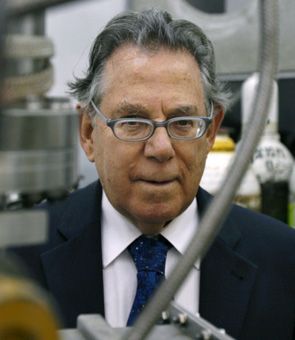Although this is the scenario we all hope (and work hard) to avoid — the consequences should be of interest to all who are interested in mitigation of the risk of mass extinction:
“WHEN Nobel prize-winning atmospheric chemist Paul Crutzen coined the word Anthropocene around 10 years ago, he gave birth to a powerful idea: that human activity is now affecting the Earth so profoundly that we are entering a new geological epoch.
The Anthropocene has yet to be accepted as a geological time period, but if it is, it may turn out to be the shortest — and the last. It is not hard to imagine the epoch ending just a few hundred years after it started, in an orgy of global warming and overconsumption.
Let’s suppose that happens. Humanity’s ever-expanding footprint on the natural world leads, in two or three hundred years, to ecological collapse and a mass extinction. Without fossil fuels to support agriculture, humanity would be in trouble. “A lot of things have to die, and a lot of those things are going to be people,” says Tony Barnosky, a palaeontologist at the University of California, Berkeley. In this most pessimistic of scenarios, society would collapse, leaving just a few hundred thousand eking out a meagre existence in a new Stone Age.
Whether our species would survive is hard to predict, but what of the fate of the Earth itself? It is often said that when we talk about “saving the planet” we are really talking about saving ourselves: the planet will be just fine without us. But would it? Or would an end-Anthropocene cataclysm damage it so badly that it becomes a sterile wasteland?
The only way to know is to look back into our planet’s past. Neither abrupt global warming nor mass extinction are unique to the present day. The Earth has been here before. So what can we expect this time?”
Read the entire article in New Scientist.
Also read “Climate change: melting ice will trigger wave of natural disasters” in the Guardian about the potential devastating effects of methane hydrates released from melting permafrost in Siberia and from the ocean floor.

From my perspective, I lean to Darwynian thinking from creator derived abilities that by simple observation speaks to cognitive processes innate to all motile creatures and under God’s creation. Evolution, in my opinion, is but one example of creation’s promise for survivability, and I would argue a part of a Creator’s plan. As far as I am concerned, and in my concern, my response was to design a new solution to the ever growing human mark; in fact a technology that today stands to increase a 300 mile per single charge EV driving average, upwards of 50%. Considering that up to 70% of human’s carbon footprint is seen in the transportation industry, technologies such as this do stand to redefine the alternative doom and gloom. With that said, I beleive that we have — in time achieved certain cognitive, and for some, a less tangible reality — to serve and protect rather than destroy our futures. Barnosky’s view, and his words, “Without fossil fuels to support agriculture humanity would be in trouble”, is in my humble opinion short on foresight… indeed, short on faith.
The thought of extinction and the end of days is something that is so popular these days hence the sprouting of such themed movies. However I would like to believe that this would not happen…especially not in 2012. However I find these films beneficial in such a way that we would be more aware of the situation in our surroundings and hopefully, make some necessary changes.